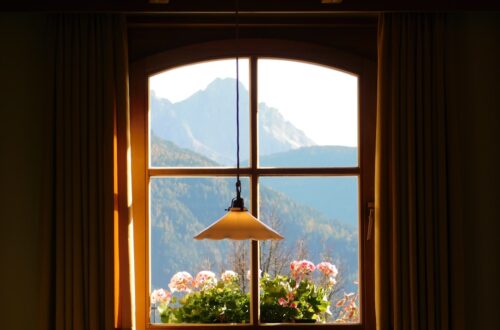In today’s fast-paced and interconnected world, solitude is often seen as a luxury or even a burden. However, spending time alone can have numerous benefits for our mental health, creativity, and overall well-being. In this article, we will explore the art of solitude and delve into its many advantages. From boosting creativity to promoting self-discovery, solitude has the power to transform our lives in profound ways.
Key Takeaways
- Solitude can have numerous benefits, including increased creativity, self-discovery, and personal growth.
- Silence and an empty room can be powerful tools for boosting creativity and inspiration.
- Being alone can help recharge and heal the brain, as well as aid in disconnecting from technology.
- Embracing solitude can be challenging, but tips such as setting boundaries and finding enjoyable activities can make it easier.
- An empty room can unleash creativity and imagination, making it a valuable tool for artists and creatives.
The Art of Solitude: Exploring the Benefits of Being Alone
Solitude is not synonymous with loneliness. It is a deliberate choice to spend time alone, away from the distractions and demands of the outside world. In our increasingly busy lives, finding moments of solitude can be challenging, but it is essential for our mental health and well-being.
One of the key benefits of solitude is increased creativity. When we are alone, we have the freedom to think deeply and explore our thoughts without interruption. This can lead to innovative ideas and unique perspectives that may not have emerged in a group setting. Additionally, solitude allows us to focus on a single task or project without distractions, leading to increased productivity.
The Power of Silence: How an Empty Room Can Boost Creativity
Silence is a powerful tool for stimulating creativity and problem-solving skills. When we are surrounded by noise and constant stimulation, our brains are constantly processing information, leaving little room for creative thinking. However, in moments of silence and solitude, our minds can wander freely and make connections that may not have been possible in a noisy environment.
Many successful creatives throughout history have utilized solitude to enhance their work. For example, renowned author J.K. Rowling famously wrote the first Harry Potter book in cafes while her infant daughter slept next to her. She found solace in the background noise and was able to tap into her creativity without distractions.
Finding Inspiration in Solitude: Why Being Alone is Essential for Creatives
Solitude is essential for creatives because it allows them to tap into their inner thoughts and emotions. When we are alone, we have the space to explore our own ideas and inspirations without the influence of others. This can lead to a deeper understanding of ourselves and our creative process.
There are many ways to find inspiration in solitude. One effective method is journaling. By writing down our thoughts and feelings, we can gain clarity and insight into our creative projects. Another method is meditation, which allows us to quiet the mind and access our subconscious thoughts and ideas.
The Science of Solitude: How Being Alone Affects the Brain
The benefits of solitude extend beyond creativity and inspiration. Research has shown that being alone can have a profound impact on the brain. When we are alone, our brains have the opportunity to rest and recharge, leading to improved cognitive function and memory retention.
Studies have also shown that solitude can increase empathy and self-awareness. When we are alone, we have the space to reflect on our own thoughts and emotions, leading to a greater understanding of ourselves and others. Additionally, solitude can reduce stress levels and promote overall well-being.
Embracing Solitude: Tips for Enjoying Time Alone

Embracing solitude can be challenging, especially in a society that values constant connection and productivity. However, there are practical tips that can help us enjoy time alone and reap the benefits of solitude.
One tip is to set boundaries with others. Let your friends and family know that you need time alone and establish specific periods of solitude in your schedule. Another tip is to create a comfortable space for yourself where you can relax and unwind. This could be a cozy corner in your home or a favorite spot in nature.
The Healing Power of Solitude: How an Empty Room Can Help You Recharge
In addition to boosting creativity and productivity, solitude has the power to heal and rejuvenate. When we are alone, we have the opportunity to recharge our energy and reduce stress levels. This can have a profound impact on our overall well-being.
There are many activities that can be done in solitude to promote relaxation and rejuvenation. For example, taking a long bath, practicing yoga or meditation, or simply sitting in silence and enjoying the present moment. These activities allow us to disconnect from the outside world and focus on ourselves.
The Connection Between Solitude and Self-Discovery
Solitude is a powerful tool for self-discovery. When we are alone, we have the opportunity to reflect on our own thoughts, values, and beliefs. This can lead to a deeper understanding of ourselves and our place in the world.
Self-discovery in solitude can also lead to personal growth and development. When we take the time to explore our own thoughts and emotions, we can identify areas for improvement and set goals for ourselves. Additionally, solitude allows us to cultivate self-compassion and acceptance, leading to greater self-confidence and resilience.
The Benefits of Unplugging: How an Empty Room Can Help You Disconnect
In today’s digital age, it is more important than ever to unplug from technology and social media. Solitude provides the perfect opportunity to disconnect from the constant noise and distractions of the online world.
Unplugging in solitude allows us to be fully present in the moment and focus on ourselves. It gives us the space to reflect on our own thoughts and emotions without the influence of others. By setting boundaries with technology and social media, we can create a healthier relationship with these tools and enjoy the benefits of solitude.
Creativity Unleashed: How an Empty Room Can Inspire Your Imagination
Solitude has long been associated with creativity and imagination. When we are alone, our minds are free to wander and explore new ideas without limitations. This can lead to breakthroughs and innovative solutions to problems.
Many successful creatives have utilized solitude to enhance their work. For example, composer Ludwig van Beethoven would often retreat to the countryside for extended periods of solitude to compose his music. He found that being alone allowed him to tap into his creative genius and produce some of the most iconic pieces of classical music.
In conclusion, solitude is not something to be feared or avoided. It is a powerful tool for personal growth, creativity, and overall well-being. By embracing solitude and taking the time to be alone with our thoughts, we can tap into our inner creativity, find inspiration, and discover our true selves. So, next time you find yourself in an empty room, embrace the silence and enjoy the benefits that solitude can bring.
Looking to transform an empty room into a cozy and inviting space? Check out this insightful article on ComparisonWeb.org that offers valuable tips and tricks on how to make the most of an empty room. From choosing the right color palette to selecting furniture and decor, this article provides practical advice to help you create a room that reflects your personal style and maximizes its potential. Don’t miss out on this helpful resource, click here to read the full article! ComparisonWeb.org
FAQs
What is an empty room?
An empty room is a space that does not contain any furniture, decorations, or personal belongings.
What are some reasons for having an empty room?
An empty room may be used for storage, as a spare room for guests, or as a blank canvas for future design plans.
How can an empty room be decorated?
An empty room can be decorated with furniture, artwork, rugs, curtains, and other decorative items to create a specific style or atmosphere.
What are some benefits of having an empty room?
An empty room can provide a sense of calm and simplicity, and can also be a versatile space that can be used for a variety of purposes.
What are some challenges of having an empty room?
An empty room may feel cold or unwelcoming, and may require more effort to decorate and make functional than a room that already has furniture and decor.





